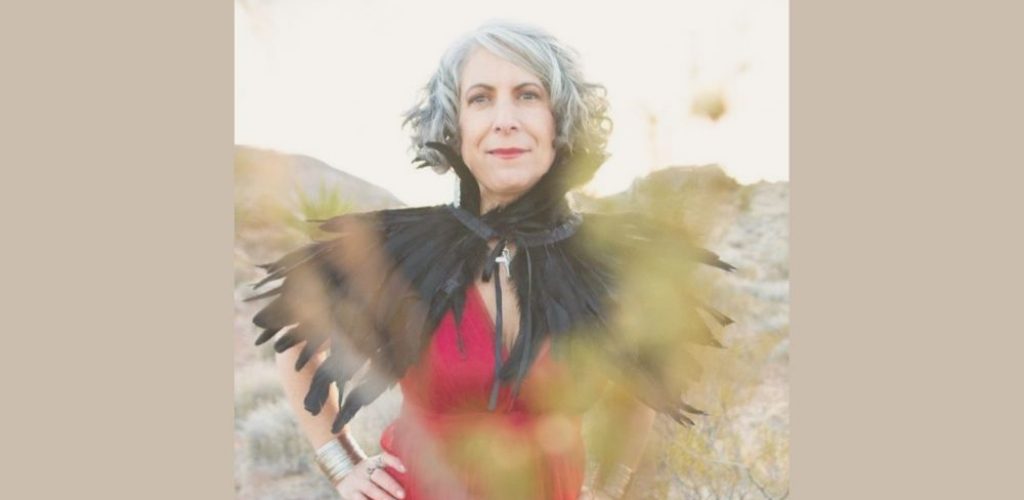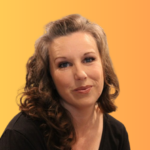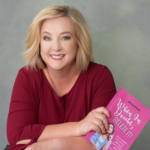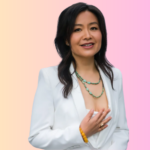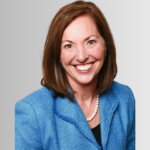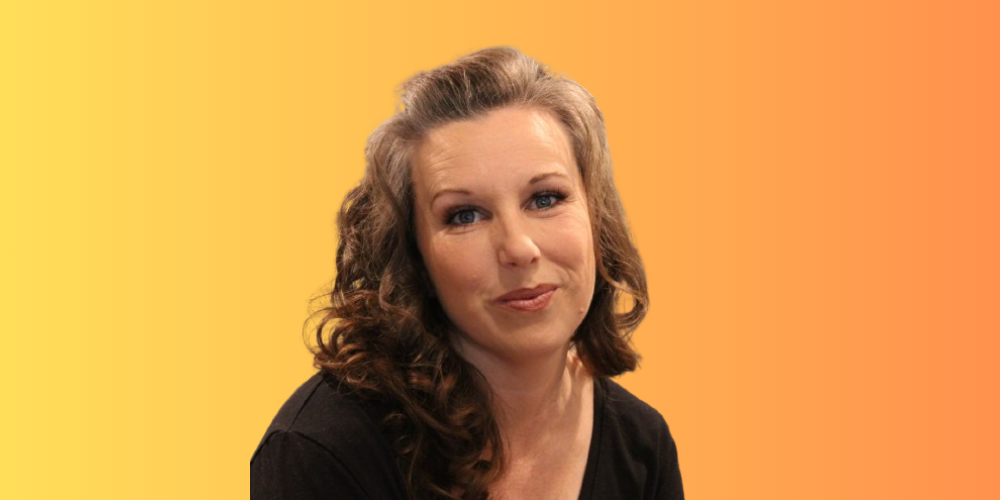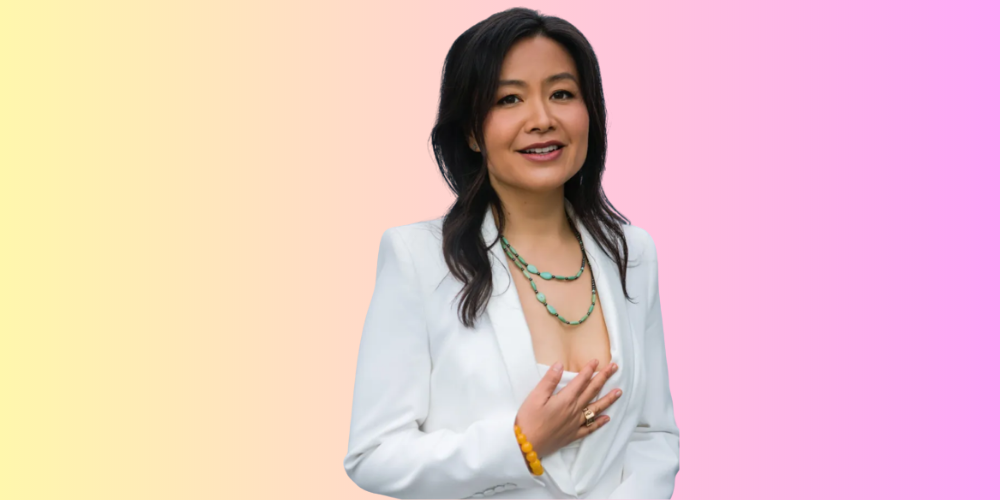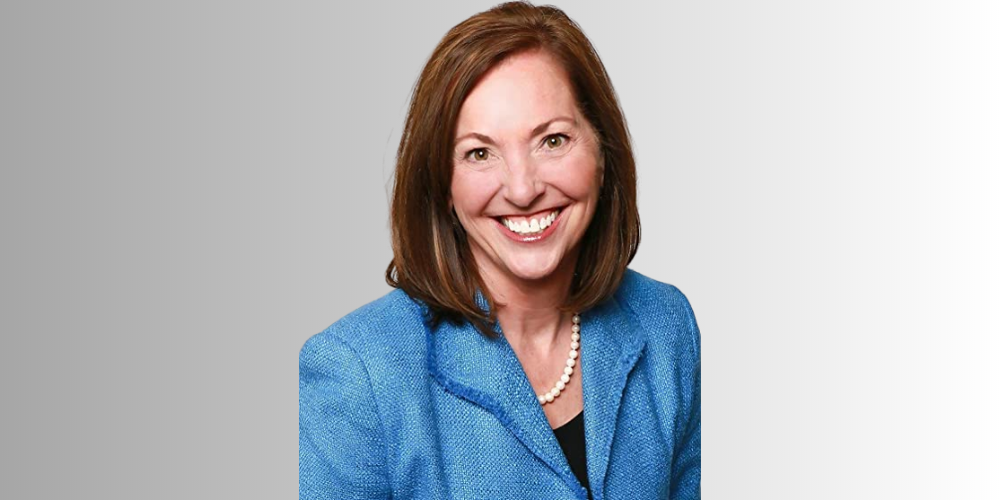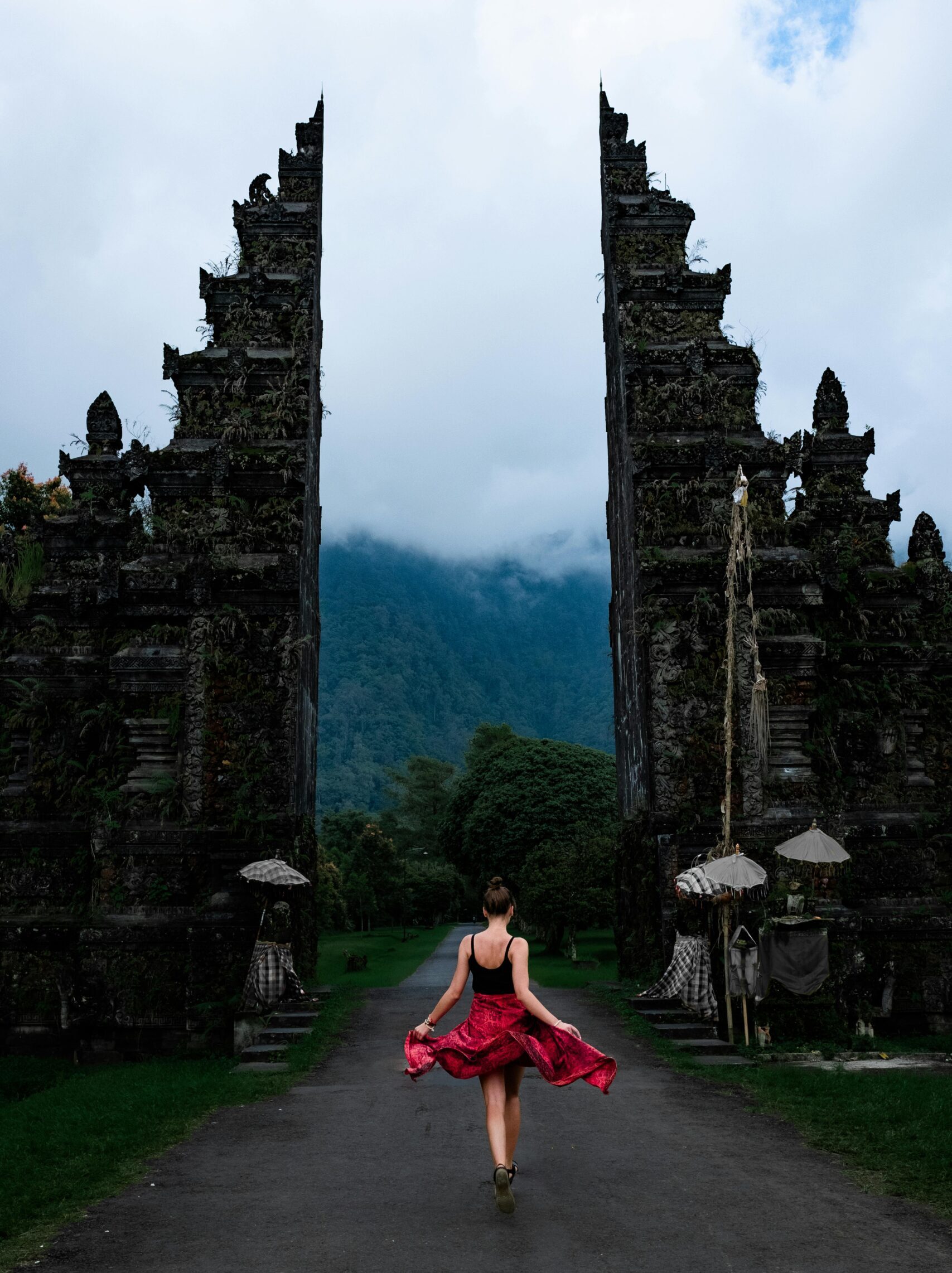Raj Girn: This week I bring you a mindset and clarity themed episode entitled “For most of my life, I have had no idea how to be a woman.” A provocative title, I know, and one that my guest, Dr. Rima Bonario, confesses to as the very first statements she makes in her one sheet which introduces her new book, The Seven Queendoms, a Soul Map for Embodying Sacred Feminine Sovereignty.
Here is our conversation:
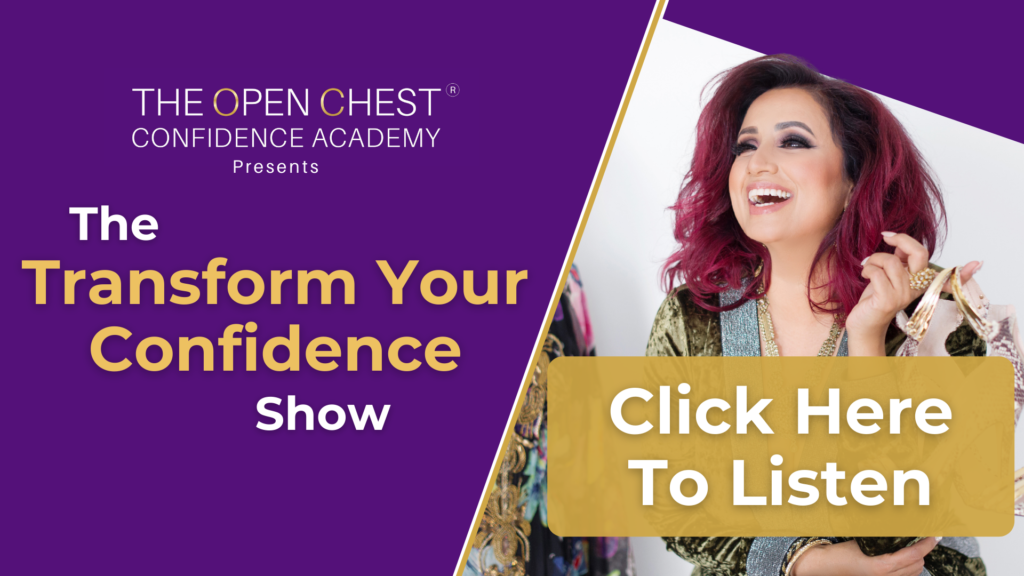
Raj Girn: Please welcome to the show a kindred sister, Dr. Rima Bernero. Welcome, Queen.
Dr. Rima Bonario: Thank you so much. I’m so delighted to be with you today.
Oh, my gosh. So let’s just like, go right into where my head’s up with this. And first, Rima, before we get into the book, I want to share with everyone watching, listening and reading this. What do you mean by the statement? And let me say it again, “For most of my life, I have had no idea how to be a woman.” Take it away. I’m so excited.
Well, in my family, growing up, my father was the predominant figure in the household and the rest of the family sort of orbited around him. I don’t think it’s a terribly unusual experience for there are many people who had strong fathers in their lives. And I also grew up Italian Catholic.
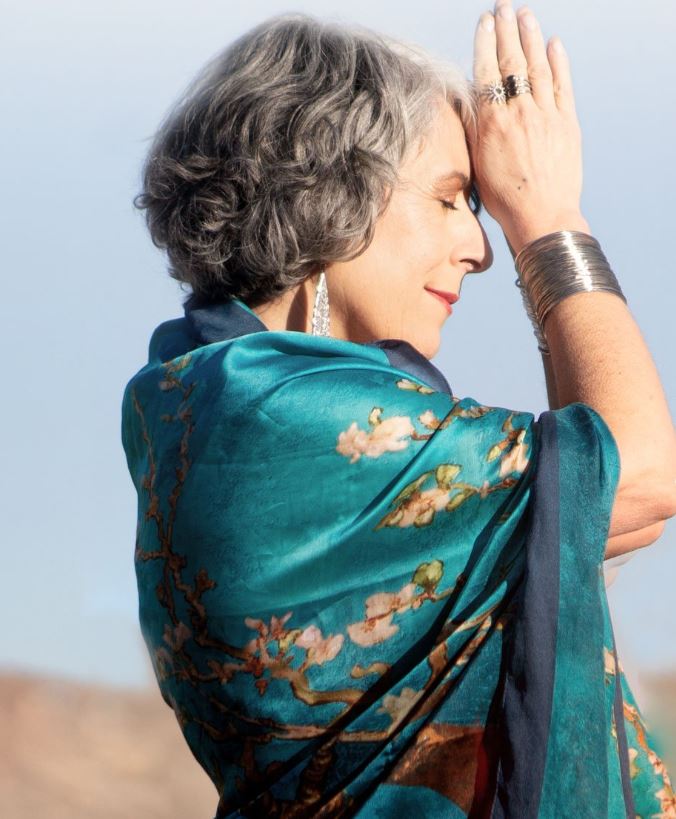
Credit: FB@Dr. Rima Bonario
So there was an expectation, if you will, around this notion of God, the father and father energy as being the most important thing. And my mom, for all her strength, was really disempowered in her relationship. And I very quickly saw where the rubber met the road, so to speak. And I said, “Well, I don’t want any part of that.”
So, I became a tomboy and hung out with my dad and painted fences and watched football and did all the things to be close with him. We did stamps, we did crossword puzzles. And still my relationship with him was fraught with tension. And one of the things that came as a result of that, as I moved into my teenage years, was that I kept getting crushes on boys and didn’t get anything back.
And part of that was because I had really disavowed everything to do with my understanding of what it meant to be a woman, to be feminine. Based on what I saw, the power struggles I saw in my house, and I was really operating in a way that didn’t read “girl,” if you will, on an energetic level. And this was completely unknown to me. I was not aware this was happening. And it took years for me to figure out what the issue was related to this.
But something interesting happened around 13 for me. There was a particular commercial that ran all summer for a perfume named Julie. And you might remember this. Some women I speak to remember this commercial because it had this jingle that went like this: “I can bring home the bacon, fry it up in a pan. And never, never, never let you forget you’re a man because I’m a woman. Julie.
Well, now I’m not a great singer, but that commercial just did it for me. I thought, okay, here it is. This is the formula. I have to do all the things, and if I can do all the things, then I will be a powerful woman who’s attractive, who hits all the right buttons. And that just sent me into a lifetime of challenge that eventually led to hitting a wall and became the birth of my work.
There’s so much you said there that requires unpacking. But the one thing that really stands out to me is this whole idea that even though you were tactically bonding with your father, there was a challenge there for you. Can you identify what that was like? Do you know what that was?
Yes. So, there was this drive to get his approval and his attention and to get it right, to be lovable and in a way that I didn’t see him loving my mom, you know? And so it got really twisted. It became this thing where I thought, if I could just be enough like this or I could just be enough like that.
And I got into that mode where I was pretzeling myself in every possible direction that I could think of. And that carried itself out into all of my relationships with men, into my early twenties and even my first marriage. I had what I call a starter marriage.
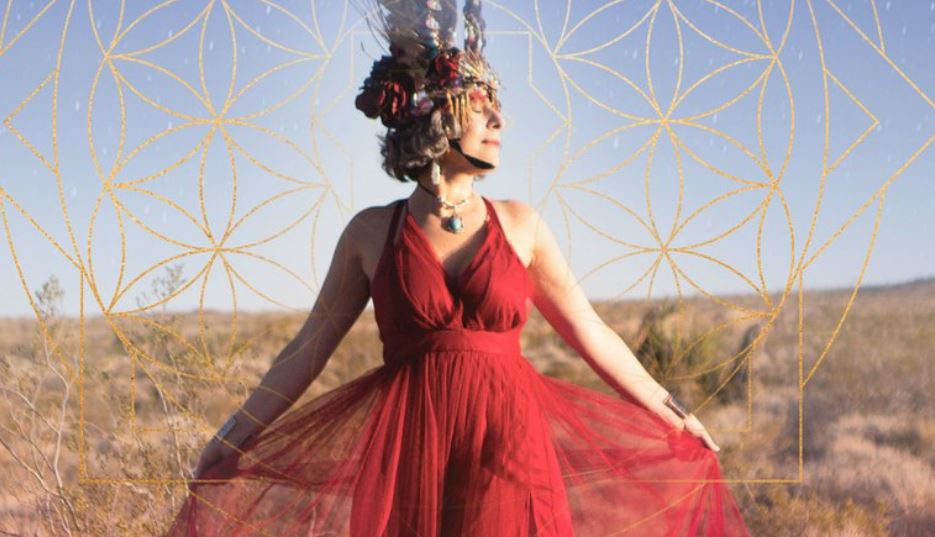
Right.
That lasted about three years until I realized, oh my gosh, somehow I have landed in my parents marriage even though I did everything I could not to do that.
Oh, my Gosh.
Yeah, it was an issue that took a lot of years to address.
You know what’s really interesting about what you just said there? I have this sense of the figure that your father was through some of what you’ve just spoken about. But I have no idea who your mother was. What was it that you felt that you needed to focus in on your relationship with your father?
And was it at the expense of your relationship with your mother? In other words, was she doing something that you felt, “Absolutely not. I’m going in this direction.” I’m just trying to figure out that dynamic from the early onset of your development as a person.
Well, it’s a little complicated with my mom. I mean, let me preface all this by saying I have a phenomenal relationship with both of my parents now, that I’ve worked very hard to create. And it’s just a love fest and it’s so beautiful.
Thank God.
Yes. It can happen. And it wasn’t easy or a given that it was going to happen. My mom, because she was in this difficult relationship where she wasn’t able to be in her power, she took a lot of that stress out on us as children. She was both the source of nurturance, but also a source of violence in our home.
Both my parents believed that physical reinforcement when we were off the path was perfectly okay. And so that meant slaps and spanks and hits and grabs and all the things. And my mom was erratic, so you wouldn’t know which mother you were going to get at any given time. But she was also the predominant source of affection and love. And she was an amazing mom.
She made costumes for us and did parties for us. And so there was so much that was good there. It’s just that she also would completely lose it at times. And some of the scars I have from childhood came from those moments. Now, I also had those moments when my dad lost it. The difference was that she was disrespected actively by my dad. Whereas she never disrespected my father.
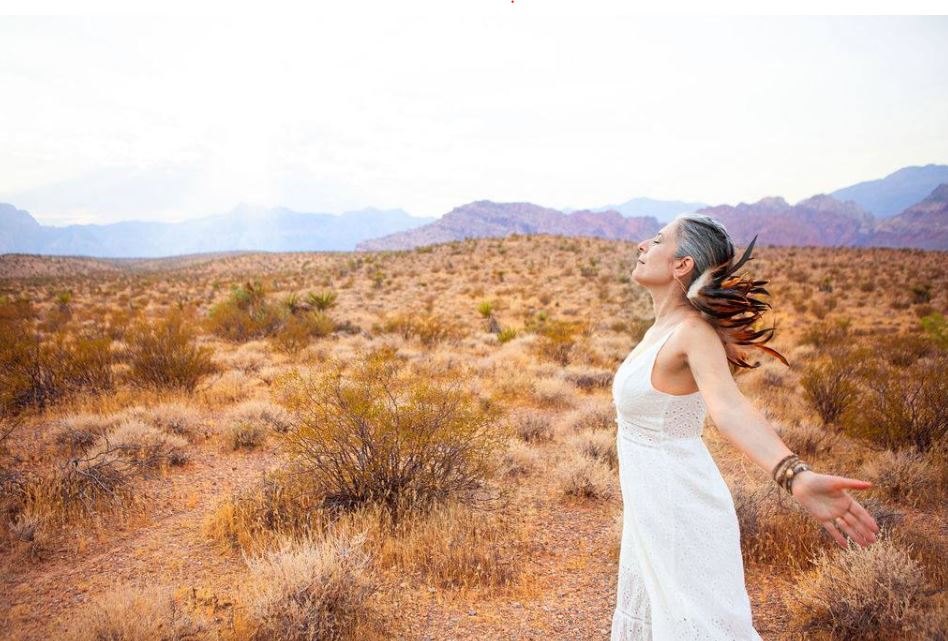
Interesting. This is interesting, Rima, because this is actually a very parallel story of many women in strong, staunch cultures. Me coming from the Indian subcontinent, where my parents emigrated to England, have the exact same story.
And it’s interesting because I found from my experience, and I’ve been on a similar journey as you and this is why your story just really spoke to me and I felt I need to have you on the podcast, that at some point we realized that we can only do the work for ourselves.
We’re constantly in a place where we feel and we’re brought up to feel that it needs to be all that outward stuff that we need to do. And it’s the inward stuff that we don’t even identify as being something that belongs to us.
Because it’s almost like strong religious backgrounds. We belong to something else, to a community, to an entity, to a way of life, to a belief system. And it’s interesting that our women, especially in your culture and in mine, which is very similar, have a very, very difficult way of trying to identify what their place is in that world. And it’s hard. It’s hard, you know?
Yeah. And it’s actually something that’s quite broad, because we live in a culture, a world culture — there are subcultures, of course, as you’ve pointed out — but predominantly our world has been created by men for men.
Yep.
And we are a one-off.
Yeah.
And this was such a powerful discovery for me to learn that my body, because it’s a female body, actually runs its energy differently than a male body and person does. And that was a game changer for me — to understand that I couldn’t continue to operate as a man energetically and with my choices. And I had to learn that I could never be a better man than the men, but I could be a better woman.
“That was a game changer for me — to understand that I couldn’t continue to operate as a man energetically and with my choices. And I had to learn that I could never be a better man than the men, but I could be a better woman.” ~Rima Bonario
I love that. What was that point in your life when your life demanded that quantum shift? Can you take us there?
Sure. I was raising my daughter and trying to run a business. And I had grown that business from one business and to two businesses and then three businesses. And I was simply up to here with all the work, all the things, all the busyness. And I was trying to be a supermom because I wanted to do better than my parents had done.
So I was as available to her as much as I could possibly be. I was doing my own deep transformational work already and a lot of shadow work and understanding old patterns, childhood conditioning and healing those old childhood wounds, and then wanting to be super entrepreneur in my life. And then I started saying, well, I really should take better care of myself.
So, then I got on the super, self-care kick. And I was trying to do the yoga and all the things. And the real moment of reckoning came when my husband finally just confronted me about this disconnect we kept having in the bedroom.
One day, we had another struggle in our attempt to be intimate.
Right.
And he just unzipped in a way and looked at me with these soft eyes. And he said, “I’d really like you to fix this.” And at the time, we both thought, well, it was just my problem. But that request really set me off on a journey to say what is going on in the way I’m living, the way I’m operating, that’s keeping me from being as sexually open and connected as I want to be?

I mean, my husband’s hot and I love him deeply. And we were great co-parents. There was nothing happening there except that my body was unavailable, and my body was unavailable because I was using my energy in this very masculine way. And it was like two masculine energies that were showing up in the bed. And for us as a heterosexual couple, that just didn’t work.
I got it. So, I kind of feel that this is the perfect segue into me asking you my next question. And it’s a great lead also into us talking a little bit more about the book. You talk about self-sovereignty. What is this?
Well, sovereignty is defined as having absolute authority over yourself, free from external influence and a state of self-governance. And this ties back to the earlier questions about what is it with women sort of finding their place? Because as women, as a group, we are still trying to have complete sovereignty over our lives in the ways that our male counterparts take completely for granted.
And so, this idea of being sovereign in yourself and in your body is truly a sense that you can, free from outside influence, determine the course of your life. That doesn’t mean you’re going to throw out your desire to care about your impact or to be in connection with people and to make good choices that are loving and kind. But it means you get to be the one to make those choices. And so that becomes a challenge when we’re trying to navigate life.
“As women, as a group, we are still trying to have complete sovereignty over our lives in the ways that our male counterparts take completely for granted. And so this idea of being sovereign in yourself and in your body is truly a sense that you can, free from outside influence, determine the course of your life.” ~Rima Bonario
Absolutely. You know, folks, if you’re just joining us, I am talking to the fabulous Dr. Rima. She is talking to us a little bit about a preface into what led her to write her book. The book is called The Seven Queen Dummies: A Soul Map for Embodying Sacred Feminine Sovereignty. So, I want to step into the book a little bit now. First of all, before we talk about what it’s about and the journey of the book, why did you feel that you needed to write it?
Well, I was teaching at the time, and I had begun sharing with my students what I was learning about my body and my energy body. And this was new. I had done a lot of work with mental sovereignty and cleaning up my thinking, and I had really done a lot of work to open my heart. So, I was in emotional sovereignty.
But I used to think of my body as a nuisance at best. I mean, you have to water that thing and exercise it and make sure it gets good sleep. You know, all this stuff. And I didn’t really understand that my inability to be connected to my body was capping my capacity for spiritual growth. And so, I had begun doing some women’s circle work and was teaching.
And I kept getting feedback from the women that were working with me. How life changing this content was for them. And they wanted to know more, and they wanted to go deeper. And I was doing online circle work when the pandemic hit.
And I thought, well, this is the perfect time to take some time to actually collect all of my teachings and my life experience and put it into a way that I can reach more women. And interestingly, at first, I thought the book was just going to be a how to book with the seven queens.
And as I started writing it, I realized, no, no, no, you’re going to have to get really vulnerable and really share the journey because it’s important for people to relate to someone who’s been on the journey with all the examples of the pitfalls and the successes.
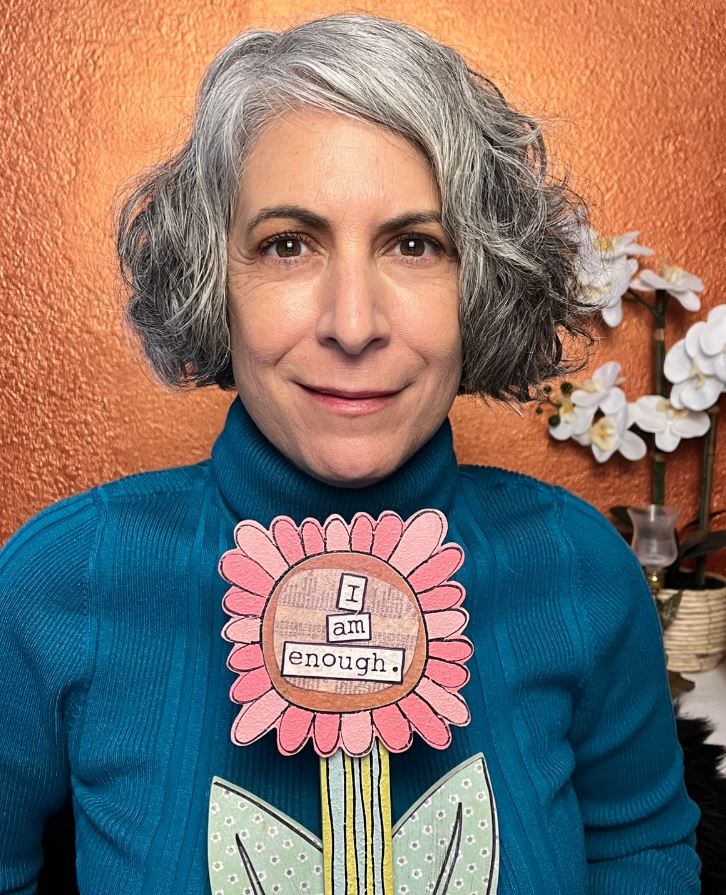
Absolutely. And you need that in there for people to really feel a sense of connection with the author. I’m so happy that the book really does go there. I want to ask you this. As a Reiki master myself, the seven queendom really spoke to me and they spoke to me because I nurture my seven main chakras with divine feminine energy also.
So, this is another reason why I really am excited to have you on, actually. My question there is, did the idea for The Seven Queendom come from the philosophies and practices of Reiki and the healing ideology behind Reiki?
Because I was checking out your website as well the images you have there, the colouring you have there, that the parts of the body, the seven queendoms talk about, is very aligned with the ideologies behind Reiki. Talk to me about that.
Well, I love Reiki. I am not a Reiki practitioner and haven’t studied Reiki, but I get Reiki all the time. I’m going there this afternoon to get ready. But I think at the basis of perennial wisdom, particularly wisdom that’s associated with the chakra system and the Vedas, and it’s very universal.
And as I was looking at these different forms of sovereignty, I could see this connection to the chakra system. And I began working with the chakras in my own body as I was studying with my energy teacher, who is Linda Zahra. She’s an amazing woman whose history actually comes through the Indigenous traditions here in America.
And so, it was fascinating to begin to see how these universal principles can be found across cultures and across systems. I was delighted to be able to bring that structure to how I share about these forms of sovereignty. And they do align with the chakra system.
And then I got to take it a step further through my travels in Egypt, where I began studying with a Reiki master and a Sufi master who is also an alchemist, a fifth-generation alchemist, who does essential oils in the ancient tradition of the Egyptian mystery school lineages. And he introduced me to oils that align with the chakra systems.
And so those also align with the seven queens in the seven kingdoms. So gosh, it’s really a juicy place to play where you can layer all of these understandings. And I think that’s why it’s so transformational.
Let’s talk a little bit about the seven queendoms. Can you give us a bit of a synopsis about what this ideology is? Who are these queens? And are all of them a part of who we are? Or do we get to focus and pick one? Talk to me about all of the above.
Well, we’ll start from the top and move down. And the domains are the areas of sovereignty. The first area of sovereignty is spiritual sovereignty. And the divine queen oversees spiritual sovereignty. And that’s really all about, can you create your own personal relationship with the divine that doesn’t have to be mitigated by some institution?
“The first area of sovereignty is spiritual sovereignty. And the divine queen oversees spiritual sovereignty. And that’s really all about, can you create your own personal relationship with the divine that doesn’t have to be mitigated by some institution?” ~Rima Bonario
And it’s fine if you have a powerful relationship that’s working in a particular religious format. Great. And go deeper. Find your own personal relationship there. Then we move into the the visionary queen. She oversees the third eye, of course, and her domain is mental sovereignty.
And this is where we really want to be checking to see are we thinking in habits and ways that are truly aligned with our soul? And this is why I like to talk about we create that relationship here, a spiritual relationship with ourselves, our deepest, highest selves.
And then we bring that into our mental sovereignty that we can see clearly and we can see past illusions. Then we move here to the expressionary Queen, the expressive Queen. She is her domain. I call it dharma sovereignty, but really it has to do with purpose, your purpose in the world. What’s your magic? What are you here to help uplift the world with? And how do you get to use your voice in the world? How do you get to help the world become a better place?
Then we move into the loving queen. She sits here, of course, in the heart chakra, and her domain is emotional sovereignty. And this is all about learning to how we connect with people. Are we able to express love for ourselves and others in healthy ways, or are we sliding into places of co-dependence or isolation? You know, each of these queens actually has a couple of shadow expressions as well. We can talk about that in a minute.
Moving on down, we get into the empowered queen. She sits sort of right there in the gut in the solar plexus. She’s where we get a sense of our energetic sovereignty. And I think this one is new for a lot of people to understand themselves as not just a physical being, but an energetic being. And that you have a whole anatomy of energy aspects of who you are, that if you can master your energetic anatomy, it can change how you move in the world and how much comfort you feel in the world.
Then we move to the passionate queen, and she oversees sexual sovereignty. And of course, that’s all about how we can be physical and intimate, but it’s more than our sexuality in terms of just sexual function. It’s also life force energy that’s the source of creation. And this is where we need to make friends with our needs, wants and desires.
And then the final one is the grounded queen. And she sits at the root and she oversees physical sovereignty. So, our physical body, our physical well-being, our sense of knowing that we have a right to exist in the world is her domain. And she’s, of course, as important as the others. And they work together as a system.
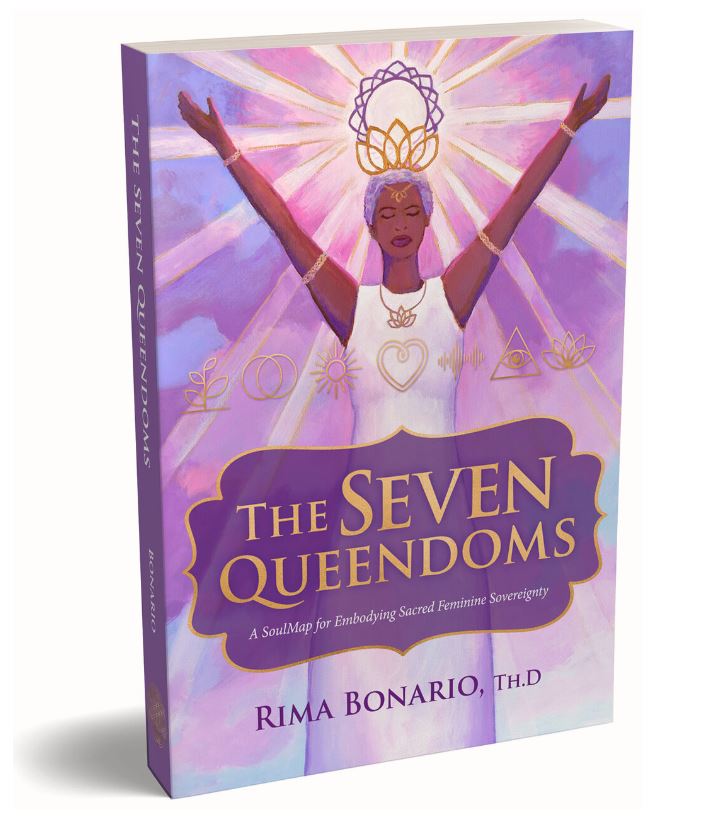
And what I like to do is encourage people to develop a relationship with each of these queens as though they have their own queens council that they can go to for advice and for guidance. And you don’t want to leave any of them out, but you will find often that there are some you gravitate towards that are easier for you and others that are more of a challenge.
Absolutely. So what’s this journey that you take people on in the book?
Well, I invite people to think about for themselves what are the ways that they experience life from the youngest that they can remember that either supported or damaged these areas of sovereignty. And in the book, there are provocative questions and exercises.
It’s that section of the book is very much like a workbook where you’re actually involved in deep inquiry as to how these areas of sovereignty were treated in your family. For example, were your dreams nourished and were you told, “Oh, yes, you want to be an actor? Absolutely. Go for it.” Or were you told, “No, that’s not really very practical. You should think about accounting.”
And so as we think about the messages that we got growing up, it helps us to see if we have areas of sovereignty that are diminished or damaged or in some way not in full bloom. And then working with each of the queens allows us to come back to a state of health.
The other thing that’s really interesting about this is we can learn to adapt in the face of those damaging statements. Sometimes we adapt by shutting down, but other times we adapt by overcompensating and doing too much of a good thing. And the section on the shadow queens for each of these main queens helps us to see are we overexpressing or under expressing in these queens. And that allows us to create a form of balance and health as we start to notice our habits.
“We can learn to adapt in the face of those damaging statements. Sometimes we adapt by shutting down, but other times we adapt by overcompensating and doing too much of a good thing. And the section on the shadow queens for each of these main queens helps us to see are we overexpressing or under expressing in these queens. And that allows us to create a form of balance and health as we start to notice our habits.” ~Rima Bonario
So, once you’ve identified where you’re at with the seven queens, what your relationship is with these various different aspects of what they represent, and you identify whether you are over, under or if you’re in the right spot, what do you recommend that people do to nurture a positive, holistic balance of them? Because once you get there, that needs to be a lifestyle associated with this. Talk to me a little bit about that.
Well, I have a yearlong program that women join me in to ask a question. It’s a practice. And it’s sort of like vitamins. You don’t take one multivitamin and say, “Oh, good, that’s done. Never have to take a vitamin again.”
And we sometimes think of personal growth work in that way that we’ll tick a box or we’ll reach a certain level of awareness, and then we’re done. And unfortunately, it isn’t like that because life continues to be life and that the more mastery we create, the more opportunity we have to have choice to meet life when it shows up.
And it’s unpleasant moments, but it takes a community, I think, to help us with that. It takes time for us to actually anchor each of the qualities of sovereignty within us, to practice, to get feedback, to see, “Oh, today I did great with my emotional sovereignty. But then I went and visited my cousin and it all went out the door.”
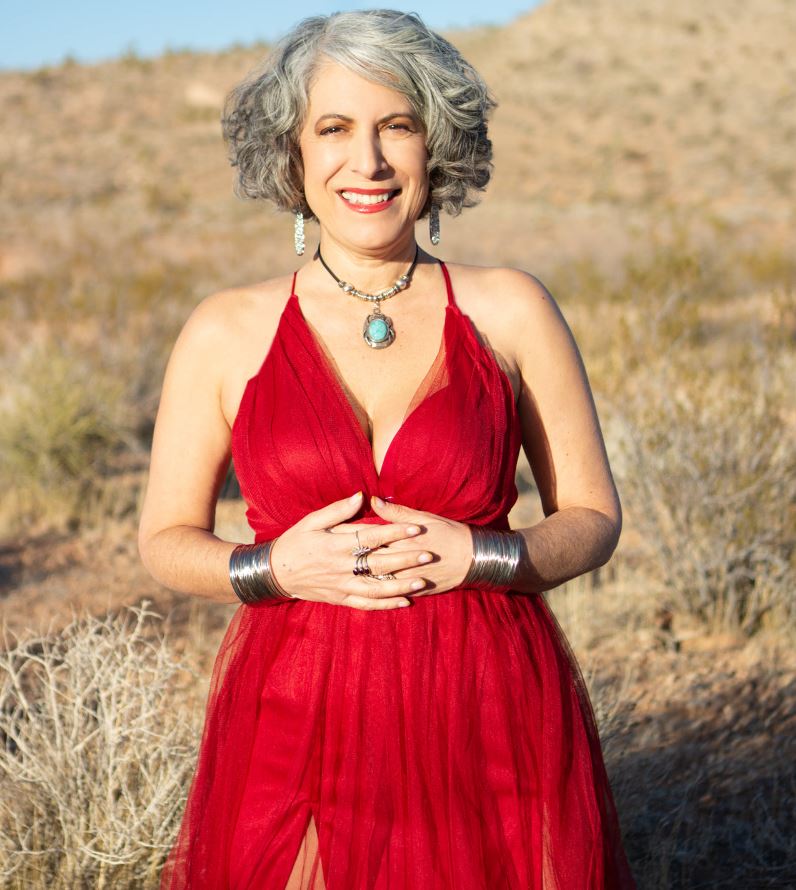
So having a community and a circle of practice is pretty important. I think that’s true for most spiritual forms of learning. It’s good to be in a community of practice. Buddhists call it a sangha. Or there are other names for it. As women we used to gather together all the time.
And this is one of the real tragedies of modern life that we live very isolated, parallel lives, and there’s not enough actual true and deep connection that’s focused around growth. Sometimes we have party buddies or shopping buddies or vacation buddies and all of that. But who do we really run with? Who supports us in becoming the best version of ourselves?
Absolutely. And I feel that was really predicated on the entire infrastructure that was made around the Industrial Revolution. We went from these beautiful, supportive extended family units to just being two generational.
And I feel that also has really impacted generational trauma as well. And I know that’s a whole other conversation, which maybe we’ll have that on another show. But let me stay aligned with keeping on track with our conversation today. And I want to ask you this, because I feel it’s something that a lot of people do have challenges with.
What do you see as the relationship between the body and the spirit that you feel people need to know from a divine feminine perspective that you also believe will help them move past traumas to heal and step into that purpose?
There’s two pieces to the answer to that question. The first is we need to understand that trauma is first and foremost a physical experience. It lives in the body. The stories we tell ourselves come second. So, the trauma is actually something that lives in the nervous system. It’s a response to danger or to life threat.
“The first is we need to understand that trauma is first and foremost a physical experience. It lives in the body. The stories we tell ourselves come second. So, the trauma is actually something that lives in the nervous system. It’s a response to danger or to life threat.” ~Rima Bonario
And when you’re an infant and even in the womb before being born and all through your growing up years, your body is designed to notice when things feel dangerous or life threatening. And we’re supposed to be able to activate our sympathetic nervous system to fight and flee, and we’re supposed to be able to move into the dorsal vagal part of our nervous system so that we can freeze and be still when we need to.
We’re just not supposed to get stuck there, and we’re not supposed to do it so often that it becomes habitual. And because we’re self-reflective beings and conscious beings and we’re trying to regulate our nervous system experience, that happens through coregulation first, through relationships first, and then for the self second.
So, if in my growing up years, both of my parents were inconsistent as to whether they could help me regulate, sometimes they were in a great spot and that was fine. Other times their systems were so chaotic and disorganized that they provided no help at all to my system. In fact, they triggered my system to feel danger. So, that’s the first thing we need to know is that the body is the genesis for the responses we have.
And then the mind tries to make sense of this, like, wait a minute. I need you to survive and you are hurting me. The people who love me hurt me. What do I do with that? How do I make sense about that? And my little girl made up, well, I’m just not lovable. Clearly, that must be the issue. And then we get into the psychological dilemmas and the self-talk and the beliefs, the underlying false and limiting beliefs that we carry, that then we begin to see the world through those lenses that then perpetuates the problem over and over again.
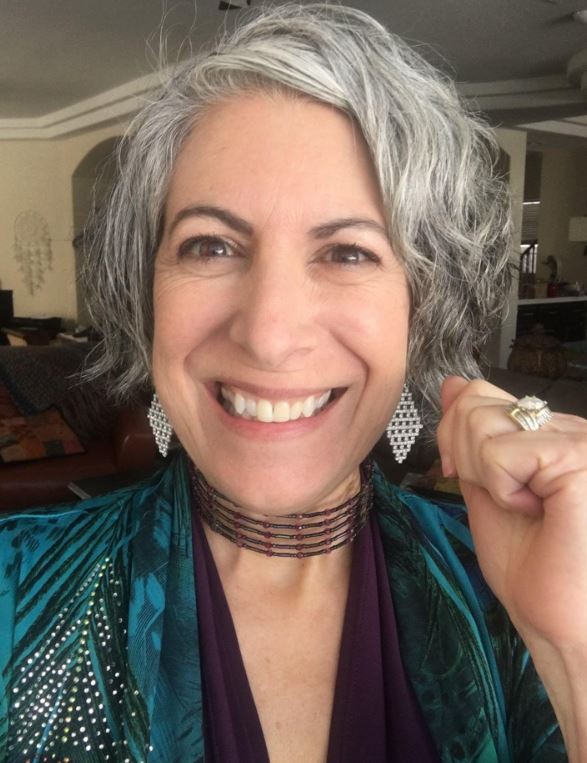
So, if we want to be the queen of our lives, to move into a place of sovereignty, to be able to live free from external influence, we have to be willing to go into the body to find these stuck and frozen and over amped places and bring them back into the compassionate heart and into a place of peace and clarity. And the scientific term is settled regulation so that we can be at greater choice and show up as the queens that we are.
Absolutely. You know, you said something so fundamental there that a lot of us don’t really think about, but we should think about because it shows up that way. And this is the whole idea of trauma being physical. I feel that that’s a very important point that people need to really sit with. Kinesiology, for example, talks a little bit about how to work through the physical ways that trauma shows up that we think is coming from an emotional place.
And it’s interesting that you’re identifying this. It leads me to ask you this question. Rima, how do you feel people can make the connection between this ethereal journey with self and the tactical world that we live in? Because this is where a lot of people get stumped on how to follow through as opposed to switch on and off. Talk to me a little bit about that.
Such a phenomenal question. So much of spiritual journeyment is focused really on this idea of moving up and out. Getting enlightened and then leaving the body somehow. And there’s a secondary message to that that says the body is not good, which is in alignment with actually some pretty conservative religious doctrine.
Oh, the body, the flesh is weak, and the spirit is sacred. But in reality, I believe that we are here to embody divinity, to be a walking example of how divinity operates on the planet, to be an emissary and advocate an expression of the divine. I think that’s what we are in our deepest truth. And so, it’s about pulling the spirit down and into the body.
And the beauty of that is we get to absolutely enjoy every beautiful, sensual thing that comes from having senses, from being in a physical body. And that’s how we move in the world. And we want to move from a place where we’ve befriended our bodies and we understand our bodies as the vehicle that the spirit drives around and gets where it needs to go. Without the body, we’ve got nothing happening here on this plane of existence. And so, it’s so important to love it and love it in a way that comes from the spirit.
It’s so interesting you say that because that aligns so much back to the whole seven queendoms, the seven chakras, that I tap into. And the whole, I feel that God has given us a roadmap on how to exist as a spirit within a physical entity through understanding the seven queendoms from your perspective, the seven chakras, which is the way I look at it.
So I want to ask you this. I feel this is a fundamental question, but it almost seems like it’s a question that should be obvious, but I don’t feel it is. Who is this book intended for?
Well, that is a great question. I think primarily women that are interested in leading a life that’s balanced, that leads to healthy relationships, healthy working scenarios, healthy friendships, healthy relationships with their children, but primarily a healthy relationship with oneself. They’re seeking to heal that.
And I have heard from many men who’ve read the book, who’ve gotten a tremendous amount out of the book as well, because these principles, of course, are universal. Even though I am speaking about them specifically through some of the unique challenges that women face. And what I would say about it is that we don’t always know exactly what the solution is, but sometimes we know the problem. And we may be feeling an incredible amount of success in our work life, even in our family life, even in how we maintain our bodies. But the inner experience can still be one of feeling very driven. Like it’s never really enough. Like it could fall apart at any moment. There could be this hint of exhaustion. Like, if I slow down . . . I can’t afford to slow down because then I’m going to feel how tired I really am.
Right.
And I can’t afford that. There’s this sense that it’s not fun. You know, it’s not joyful, it’s not delightful. It’s not coming with ease and gentleness and a sense of wonder. And I’m here to tell you, you can have all of the things you think of that mean you are successful and not feel that inner sense of peace and joy and wonder and aliveness. And that’s really not success in my book.
“You can have all of the things you think of that mean you are successful and not feel that inner sense of peace and joy and wonder and aliveness.” ~Rima Bonario
Oh, my gosh. That’s palpable. Because you just spoke a little bit about men, is there anything you can share with our male audience or with women who are very masculine, energy centric about utilizing the seven queens that we’re going to say that again, about utilizing the seven queendoms within. Like, how do you find what you haven’t yet experienced? I guess, is the question.
One thing I would say is that femininity and being in your feminine power looks completely different for every woman. There’s no one way for us to own our feminine power. This is an archetypal energy. Masculine energy and feminine energy. The way I talk about it in the book are archetypal energies, and men and women both have masculine and feminine energies within them.
So, the way to approach this is to think of this as if you boil it all the way down. Masculine energy is an outputting energy. It moves outward. It’s very action oriented. And it is all about this sort of get it done driven energy. Feminine energy is more of a drawing in. It’s an inward energy. It is spacious and nourishing and nurturing. And there’s a place for stillness and darkness within their darkness in the best possible way.
And what we want to understand is that our bodies need some amount of both of this. And our culture is driven to the point of disease. We over emphasize the doing masculine energy. And you can be a man and feel that every bit as being a woman and feel that. It just so happens that the male energy body gets charged by doing. And tends to get drained if they receive too much.
Which is the opposite of what happens in a woman’s energy body. In a woman’s energy body, we get charged by receiving. And we get drained by giving.
Interesting.
And so how this is useful for both men and women to understand is that this happens in the corporate world all the time. Guys are in there and they’re just driving, going, going, going. And we join that environment, and we do our best to go, go, go with them.
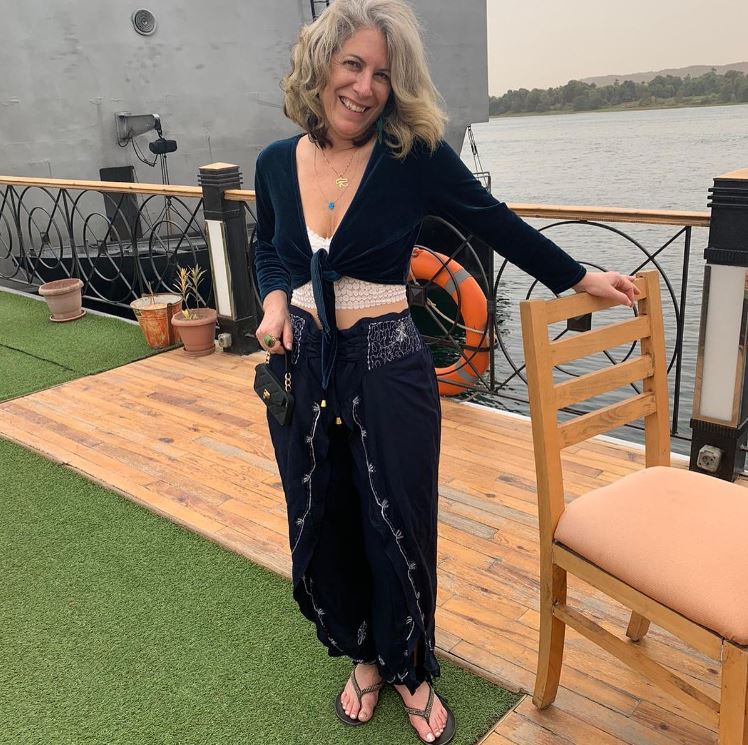
And eventually, we can’t anymore. And there’s often confusion on the male counterparts part like I don’t understand what’s the problem here? We’re all doing it and it’s fine. It’s all working for us. Why? Why do you need something else? Well, because our energy bodies just operate differently.
And so, we need to be filled first. And if we get practiced at becoming good receivers, most of us really suck at receiving and we can get practiced at receiving and fill to overflow and give from the place of luscious overflow.
Right.
All that giving is giving freely. It’s not at our own expense. We’re not sitting there emptying ourselves and waiting for someone to come along and fill us up, which, by the way, doesn’t happen. And it creates an experience where men and women and women and women and men and men, if we’re all in a balanced way, can relate to each other in greater harmony.
Oh, my gosh. Let me ask you this. What’s the best way for the book to be used to get the best impact of what is the best impact?
Well, the best impact, of course, would be to begin to experiment with ways that you can feel your own sovereignty in each of these domains. And it starts by being willing to tell yourself the truth about how well your life is working for you right now.
If there are some areas of your life where it isn’t really working very well for you, just be willing to own that name, that say that truth, that this isn’t what you’d like for it to be. Then you can use the chapters for those queens to support you in actually beginning to create something new. And you can go through the book from start to finish and work with each of those queens.
Or you can go straight to an area that you think is troublesome for you and just get started right there. What I do find people tell me about the book is it’s not something they read just once and put it away and think, “Well, that was great.” They go back to it over and over again when they’re noticing, I need a little bit of a boost in my mental sovereignty, or this seems to be an issue that was created around an energetic sovereignty, or I’m having a struggle in my work life was my purpose.
Let me go see what the book says about my expressive sovereignty, my dharma sovereignty. And that’s really how people, I think, really engage with the work.
Where can people purchase a copy? Let’s send people there.
You can find the book on Amazon. It’s available. You can just search for The Seven Queendoms and it’ll show up. You can also, if you want to, go to my website, rimabonario.com and on there I have a little quiz that you can take to see which queen archetype is currently your strongest queen archetype.
And when you go through that quiz at the very end, there’ll be an opportunity for you to put your email address in and we will send you a full report on that queen so you can dive in more deeply to each of those queens. I have some of those reports also available on my store online so you can get them all just by purchasing the book. If you pop over to Amazon and find it there.
Perfect and your coaching? Your courses? Website?
They’re all on rimabonario.com. And coming up soon in November is one of my favourite things that I do all year. It’s called the Queen’s Counsel, and that’s when I invite 14 of my sister priests as colleagues to come and join me in teaching profound practices.
Two for each of the queens, and we have a great time offering this content out and we get a really a amazing group of women from all over the world that come in and join us for that. And there’s information about that on our website.
On your website. So do you have any social handles that you’d like to share as well, Rima, so people can hang out with you?.
Yeah, absolutely. You can find me on Facebook. That’s mostly where I like to hang out, but I’m also on Instagram and on LinkedIn. And as far as I know, I’m the only Rima Bonario in the whole world. So, pretty easy to find.
I love that. So as we get ready to close off, I want to loop back to today’s show theme. Here it is again. For most of my life, I have had no idea how to be a woman. I want to ask you this, Rima: Is there anything that I haven’t asked you that you feel everyone watching, listening and reading this need to know before we close off?
I would say the biggest change that I made that helped me really learn how to embody myself as a sacred feminine being was to come into my body all the way down into my pelvis and learn to inhabit my womb space. Learn to be in connection to my womb space.
“The biggest change that I made that helped me really learn how to embody myself as a sacred feminine being was to come into my body all the way down into my pelvis and learn to inhabit my womb space. Learn to be in connection to my womb space.” ~Rima Bonario
Because it doesn’t matter if you’ve had a hysterectomy and you don’t have a physical womb anymore, you still have an authentic womb there. It’s an energy that’s palpable where you can turn on your life force energy. I love the word Shakti to describe this particular energy. And as you develop a relationship with this part of your body and with this form of energy, you will discover that it is your feminine superpower.
It is what makes you special. It is where your magic is. And as you learn to receive in and become a good receiver and not feel guilty about it or ashamed about receiving or somehow reject it as though it’s not okay, your life will begin to transform.
And it’s so interesting that you said Shakti, because Shakti is the goddess of birth in Hinduism. And and it’s really interesting because Shakti also means truth.
So it just all aligns. Doesn’t ancient wisdom, Rima align? I mean just think about all of these very different isolated ancient cultures that literally they’ve taught the same thing but in different ways. Life is fascinating, isn’t it?
It’s so fascinating. And it’s like bursting out from the weeds and getting up above and suddenly seeing there’s this huge picture that we didn’t know we were this tiny part of. And I will say that we are living at a really unique time right now.
I mean, I really believe that there’s a reason that so much of this ancient wisdom is becoming available for us at this time. Some of it’s been buried for a long time.
And because we’re in this moment where we’ve come to the edge of the usefulness of masculinity or really patriarchy in its singular expression, and it’s imperative for us if we’re going to continue to survive as a species, that we bring the feminine perspective back in and bring some balance back to the way we operate and allow ourselves to have a more balanced experience of life within our own bodies, within our relationships with each other, and within our environment and our relationship to the Earth.
Absolutely. And it’s really interesting because as you see, the divine feminine raised in the energy in the universe, you also see a lot of push back from the male institutions that have been created throughout history.
I mean, you look at the whole abortion thing in America. You look at the hijab thing that just happened over in Iran. You look at the many ways that patriarchy is trying to push down the feminine that is inevitably rising up regardless. It’s very interesting to see what’s happening right now in the world and why we really need to step into creating balance and harmony with both sides of who we are as spirit and as humans.
And I think that’s what’s important for women to understand is that our role in that is not to show up in masculine energy, then we’re just putting more masculine energy on the planet. It’s to find our unique expression of our feminine power and live from that.
Amen to that. Rima, what an absolute pleasure you have been. Thank you so much for bringing your philosophies, your wisdom and insights to the show today. Thank you. Thank you.
My pleasure.
Guys, it’s really been a great episode. You guys know that I love to be able to have these conversations with like minded kindred spirits. And that’s exactly what happened today with Rima.
I just want to put out there to you guys that if this episode has piqued your interest and you want to know more, I encourage you to go grab a copy of Rima’s book: The Seven Queendoms, a soul map for embodying sacred feminine sovereignty and also join her ecosystem to really deep dive. I think it’s very, important for us to own our right to be whole humans.
And I really hope that you guys got some real value from today’s show, and will share it with everyone out there that you feel needs to get today’s learnings. I also hope that you’re subscribed to my YouTube channel. You know that I always say this and hit the notification button at the Open Chest Confidence Academy so that you never miss an episode when it drops on Wednesdays.
You guys also know that you can download the ‘Transform Your Confidence Show’ on podcast platforms and give it a five-star rating. Guys, if you feel that it’s been very valuable in terms of being a resource to assisting your journey, to empower your confidence with actionable insights, or if you just really love just hanging out with me because I love hanging out with you each and every week.
You can also read the podcast as a blog article at theopenchestconfidenceacademy.com/media/podcast and I really look forward to seeing you next week for another invaluable episode packed with insights and learnings, just like today, to help empower your work, your life and your spirit. Take care of yourselves always, guys.



